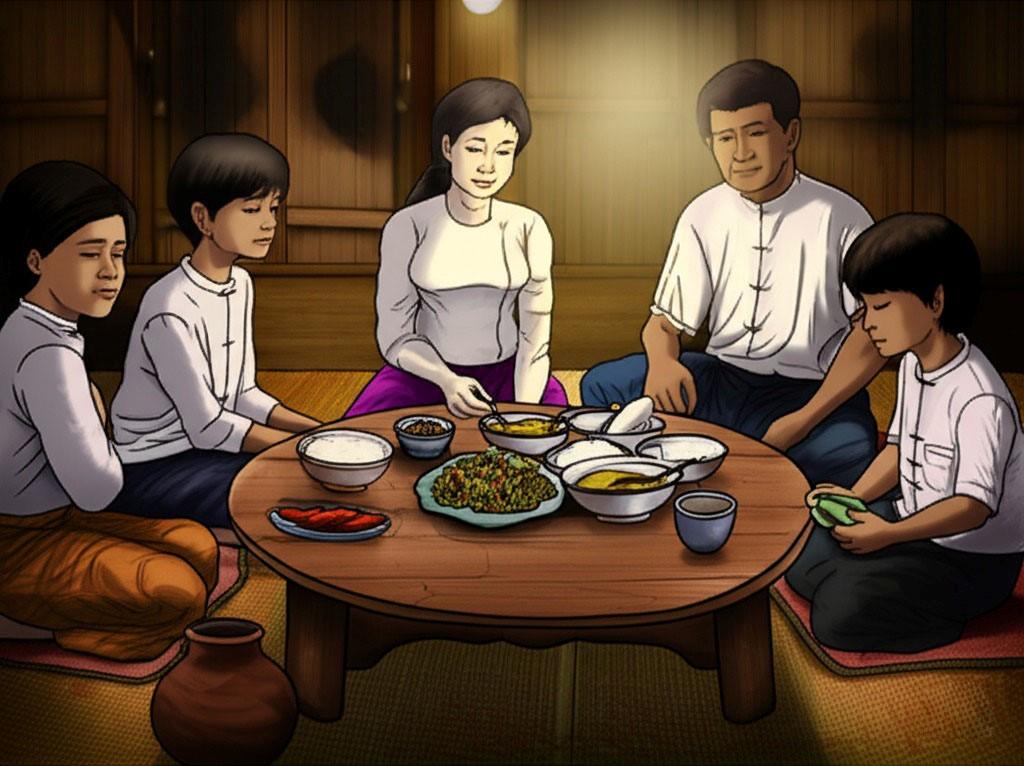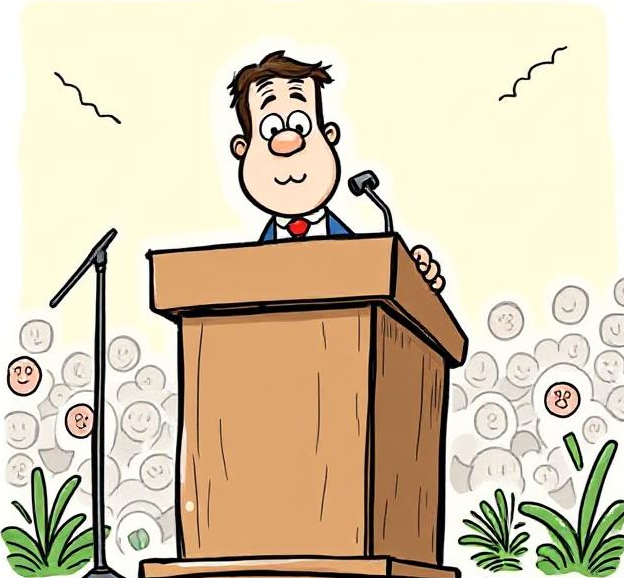Not Just Wood, But The Heartbeat of The Home
Posted_Date
Image

Body
Some homes have clocks that mark time — we had a dining table that marked life. More than just wood, it held our stories, our meals, and the unspoken rhythm of our days. It stood in the centre of the room, a round, sturdy wooden relic with a deep, mahogany hue that seemed to glow under the soft light of the hanging bulb. Passed down from my grandparents, it carried the weight of generations, its surface etched with the subtle scars of time: faint scratches from my brother’s toy cars, a small burn mark from a careless moment with a hot pan, and countless rings from water glasses left unattended. Each mark was a chapter in our family’s story, a silent witness to the laughter, arguments, and quiet moments that defined us.
“Children, let’s have our dinner,” Mom’s voice would call, cutting through the hum of our studies. It was a summons we couldn’t resist. Dropping our schoolbooks, we’d race to the kitchen, drawn by the promise of her cooking. The air was thick with the scent of spices — turmeric, cumin, and the faint sweetness of coconut milk, mingling with the rhythmic clatter of pots and the hiss of steam. Mom stood at the stove, a tall figure of grace even in the chaos of meal preparation. Her hair, often dusted with flour or streaked with lamp-black from the woodfire, framed a face that time had only softened, not diminished. Sweat beaded on her brow, yet she moved with a quiet elegance, her hands deftly shaping each dish into an offering of love.
She was a master in the kitchen, her talent turning even the simplest ingredients into something extraordinary. A pot of rice became a fluffy, fragrant bed for her curries, and even a watery vegetable stew carried the warmth of her care. “It’s all in the timing,” she’d say with a smile when I’d ask her a secret, her voice as soothing as the meals she prepared. I can still see her ladling out portions, her eyes scanning the table to ensure everyone had enough, her presence a steady anchor in our daily lives.
Dad was her counterpoint, a man carved from the earth itself. A farmer, his days were spent knee-deep in the rice fields, his skin darkened to a rich brown by the relentless sun. But beneath his calloused hands and stern demeanour lay a mind sharp with unfulfilled promise. The political unrest of 1988 had stolen his chance at a full education, cutting short his time as a Grade X student. Yet he never let that define him. Instead, he poured his intellect into us, teaching us math, science, and literature with a rigour that left no room for laziness. We never needed tutors — Dad was our guide, his strictness — a scaffold for our futures. “Books before play,” he’d say, his voice firm as he handed us our texts after our post-school baths.
Dinner was our sacred hour. The table, set with Mom’s meticulous care — plates aligned, glasses filled, a small vase of marigolds at its centre — became our gathering place. We each had our spot: Dad at the head, Mom to his right, and my siblings and I fanned out around the circle. The kitchen buzzed with life — the ceiling fan whirring overhead, the clink of spoons against plates, the chatter of our voices. My sister, ever the storyteller, would launch into tales of schoolyard triumphs, her hands waving dangerously close to her glass. “And then I scored the winning goal!” she’d exclaim, while my brother, quieter and more reserved, would nod along, his face lighting up only when Mom slid a bowl of her fish curry his way.
“Mom, this is amazing,” I said one night, my mouth full of her spicy chicken stew. She laughed, reaching over to pat my head. “Slow down, my dear. There’s plenty more where that came from.” Dad, chewing thoughtfully, would add, “Good food fuels good minds. Eat up, then back to your books.” It was a routine as comforting as the meal itself, a thread that wove us together.
But time, relentless as it is, began to unravel that thread. I was the first to leave, sent to a boarding school to finish high school. The day I packed my bags, the dining table stood behind me like a sentinel, laden with Mom’s farewell feast — sticky rice, grilled fish, and a bowl of her mango dessert. Her eyes glistened as she hugged me. “Don’t skip meals,” she whispered, her voice trembling. At school, the dining hall was a cold contrast: long, sterile tables, lukewarm food, and the clamour of unfamiliar voices.
I’d sit there, pushing soggy vegetables around my plate, dreaming of home. Holidays brought me back, and the table welcomed me like an old friend, its familiar scratches a balm to my homesickness.
My sister left next, her ambition pulling her to the city with a scholarship in hand. We gathered for her send-off, the table groaning under the weight of Mom’s cooking. “You’ll do great things,” Mom said, forcing a smile as she passed the rice. But her hands lingered on the bowl, as if reluctant to let go. My brother followed years later, the baby of the family chasing his own path. His departure broke something in Mom. I found her one weekend, sitting alone at the table, her gaze fixed on the empty places. “It’s too quiet now,” she murmured, her fingers tracing the burn mark from years ago. I sat beside her, our silence heavy with shared understanding.
Last month, I turned thirty. My siblings are scattered, chasing lives of their own, and the dining table now holds only two regular occupants: Mom and Dad. Its legs, once sturdy, wobble under the slightest pressure, a mirror to Mom’s frail health. Dad offered to fix it once his tools were ready, but Mom stopped him. “No,” she said, her voice resolute. “This table stays as it is. It’s where my children grew up, where we were a family. When they come back, I want them to see it just as they left it.” Her words hung in the air, a testament to her unwavering hope.
Sometimes, I visit. Mom still cooks, though her meals are simpler now — just enough for two, with leftovers saved for me. The table creaks as we sit, but it holds. “Why not get a new one?” I asked once, eyeing its unsteady frame. She shook her head, smiling faintly. “This table’s seen us through everything. It’s old, but it’s ours.”
GNLM






